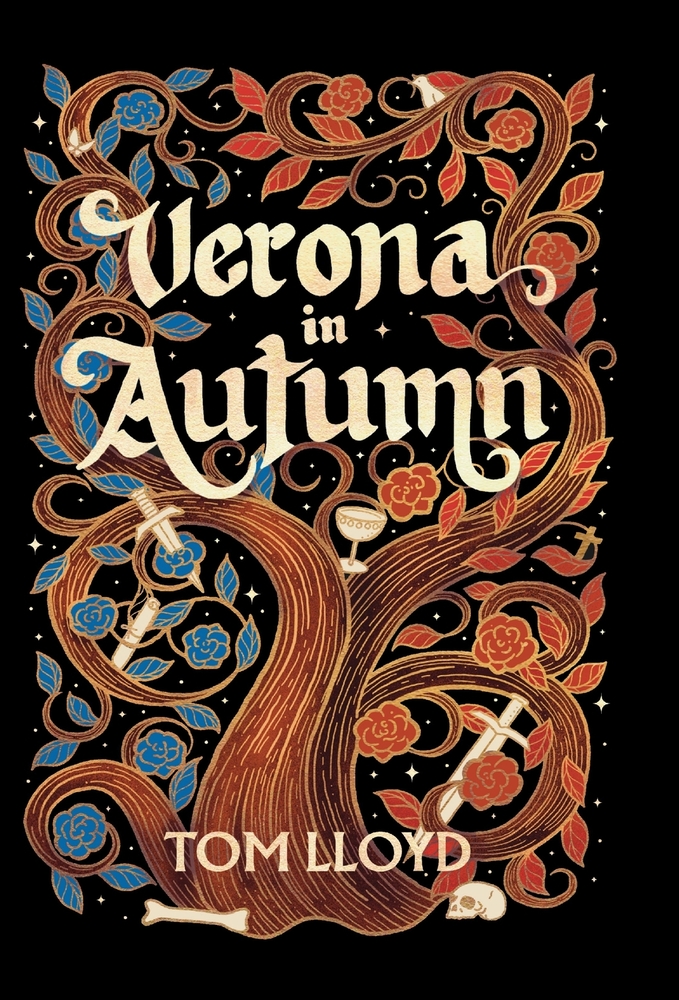Verona in Autumn – making up history
Not every idea pans out. Something that seems brilliant in your head never translates to the page however you approach it. But sometimes it almost feels like the world is giving you a hint that a book is right and you should stick with it as things fall into place.
I had this strange sensation when I started doing research for Verona in Autumn. It was still a game at that point. I’d written an opening chapter and liked it, but it wasn’t serious. I wasn’t definitely going to write the whole book based off that. I didn’t even know what sort of book I wanted to write. I could start and see where it took me, but there were stumbling blocks I needed to get over first – period and politics. If this was going to be historical fiction, I need to have a better idea of when it took place and how my idea could be plausible. How might Romeo and Juliet could live abroad for years (because I wanted them to be grown-ups when they returned, preferable with children of their own) then return under any circumstances?
In the play, Prince Escalus is the ruler of Verona, but that’s all the information you get. So I did a bit of googling and fell down the rabbit hole, as it were. Possibly based on Bartolomeo I Della Scala said various websites. I did a little digging around the family there and… made a mistake. Or rather, someone on the internet did. When names are so similar, passed on through families, it’s easy to get things wrong with links to other webpages especially as some will have been written or translated from Italian.
In short: Bartolomeo I was elder brother of Cangrande I. A few generations later you’ve got Cangrande II being assassinated by his brother Cansignore, who’s son Bartolomeo II was murdered by his other son Antonio…. The link I followed brought me to this murder and the end of the Scalier line as rulers of Verona because it was taken over by Milan, most particularly one Gian Galeazzo Visconti, who’d been at war with them until the Veronese got fed up of their fratricidal rulers.
Of course, Shakespeare wasn’t a scholar of 14th Century Italian dynasties. Would he have been so particularly tied to one historical figure he wasn’t willing to take liberties with the detail? Absolutely not, so Bartolomeo might have been little more than a name, a ruler who wasn’t one of the strangling despots. I had a quick read about Gian Galeazzo and before long became just a little bit fascinated – while in my head I could almost hear pieces of the puzzle slotting into place.
A cunning ruler, Gian Galeazzo wasn’t the warrior thug his famous uncle, Bernabo, was, but a bookish, sickly man with a ruthless streak his uncle certainly never saw coming. Certainly the sort of man who’d ignore Romeo’s death sentence if he saw advantage in it. Also the sort of man who would use lawyers and bureaucrats in conjunction with mercenaries. I’d already decided Romeo was a bit too sensitive to become a condotierro himself, but he was noble-born and therefore probably well-educated. At the time Milan was the place for such skills.
A little more scouting around and I started to look at Gian Galeazzo’s mercenaries, Jacopo dal Verme, Alberico da Barbiano, Facino Cane… and then I spotted a peasant boy who joined a mercenary company very young but rose to become the Count of Carmagnola. In the service of Milan for a long time, Francesco Bussone was too poor to have a recorded birth date but around 1400 he might just be about the same age as Romeo and Juliet’s daughter… The divisions between noble houses might be hard to breach, but what would parents who’d lived through this think of a division in social class? There was perhaps only one way to find out – start writing and put it to them.
https://unbound.com/books/verona-in-autumn/
